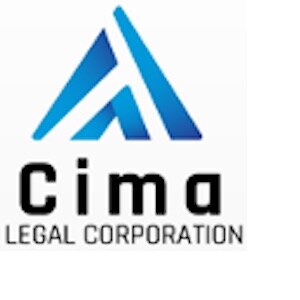Best Tax Increment Financing Lawyers in Ecuador
Share your needs with us, get contacted by law firms.
Free. Takes 2 min.
Or refine your search by selecting a city:
List of the best lawyers in Ecuador
About Tax Increment Financing Law in Ecuador
Tax Increment Financing (TIF) in Ecuador is a development tool used to stimulate economic growth and redevelopment in designated areas. It involves using the increased tax revenues from improved property values to fund development projects. These projects might include infrastructure improvements, public facilities, or other community beneficial services. The approach encourages investment and assists municipalities in revitalizing underdeveloped regions without directly increasing taxes. In Ecuador, TIF is subject to national and local regulations that outline its implementation and management.
Why You May Need a Lawyer
Engaging a lawyer experienced in Tax Increment Financing can be crucial for several reasons. Investors, developers, or governmental entities typically require legal assistance to understand the complexities of TIF agreements, ensure compliance with both national and local laws, and negotiate terms that are favorable. Legal counsel can also help in resolving disputes or litigating issues that may arise during the course of TIF projects. Furthermore, understanding the implications of tax code changes, especially those unique to TIF, is essential for informed decision-making.
Local Laws Overview
In Ecuador, Tax Increment Financing is subject to various legislative frameworks at both the national and municipal levels. Key aspects include:
- Authorization and Regulation: TIF projects must receive authorization from relevant governmental bodies, which evaluate the potential economic benefits and risks involved.
- Project Scope and Development: Legal guidelines determine the type of developments eligible for TIF funding, emphasizing projects with significant public benefit.
- Assessment and Distribution: Local governments are tasked with assessing property values periodically and ensuring the equitable distribution of tax increments among stakeholders.
- Transparency Requirements: Regulations often require detailed reporting and public disclosures related to TIF-funded projects to promote transparency and accountability.
Frequently Asked Questions
What is Tax Increment Financing?
Tax Increment Financing is a financial tool that uses future gains in property tax revenues to fund current development projects in a specific area.
Who can initiate a TIF project?
Typically, TIF projects are initiated by local governments in partnership with private developers or investors interested in the redevelopment of an area.
Are there specific areas where TIF is applicable?
Yes, TIF is generally applied in underdeveloped or economically stagnant areas where economic growth is desired.
How are the funds from TIF used?
Funds are used for public infrastructure improvements, community facilities, and sometimes private development if it serves a public purpose.
Is TIF a loan or grant?
Neither. TIF is a financing mechanism; it does not rely on traditional loan structures or grants.
How does TIF impact property taxes?
TIF does not directly increase property taxes. Instead, it utilizes the incremental increase in taxes from rising property values post-development.
Can TIF be used for residential projects?
Yes, TIF can be used for residential projects, especially those that provide affordable housing or have a significant community benefit.
What are the risks of participating in a TIF project?
Risks might include project delays, changes in property values, and potential legal disputes over project terms or outcomes.
How long do TIF agreements last?
The duration of TIF agreements varies, often ranging from 10 to 30 years, depending on the development plan and economic projections.
Is public input required for TIF projects?
Public hearings and consultations are generally part of the TIF approval process, allowing community members to voice concerns or support.
Additional Resources
For more information about Tax Increment Financing in Ecuador, consider reaching out to the following resources:
- Ministry of Urban Development and Housing
- Local Municipal Development Offices
- Ecuadorian Institute of Municipal Development and Financing
- Local legal associations specializing in municipal finance and urban development
- Professional legal firms with expertise in public finance and TIF law
Next Steps
If you are considering involvement in a TIF project or require legal advice, it is advisable to follow these steps:
- Research: Familiarize yourself with the basics of TIF and how it operates within Ecuador.
- Consultation: Reach out to a lawyer or legal firm specializing in TIF for an initial consultation to assess your needs.
- Documentation: Gather any relevant documents or data related to your interest or involvement in TIF projects.
- Professional Advice: Seek detailed legal advice to understand contractual obligations, financial implications, and regulatory compliance.
- Engagement: Work with your legal advisor to steer through the process, ensuring all legal and procedural aspects are adequately addressed.
Lawzana helps you find the best lawyers and law firms in Ecuador through a curated and pre-screened list of qualified legal professionals. Our platform offers rankings and detailed profiles of attorneys and law firms, allowing you to compare based on practice areas, including Tax Increment Financing, experience, and client feedback.
Each profile includes a description of the firm's areas of practice, client reviews, team members and partners, year of establishment, spoken languages, office locations, contact information, social media presence, and any published articles or resources. Most firms on our platform speak English and are experienced in both local and international legal matters.
Get a quote from top-rated law firms in Ecuador — quickly, securely, and without unnecessary hassle.
Disclaimer:
The information provided on this page is for general informational purposes only and does not constitute legal advice. While we strive to ensure the accuracy and relevance of the content, legal information may change over time, and interpretations of the law can vary. You should always consult with a qualified legal professional for advice specific to your situation.
We disclaim all liability for actions taken or not taken based on the content of this page. If you believe any information is incorrect or outdated, please contact us, and we will review and update it where appropriate.
Browse tax increment financing law firms by city in Ecuador
Refine your search by selecting a city.

















